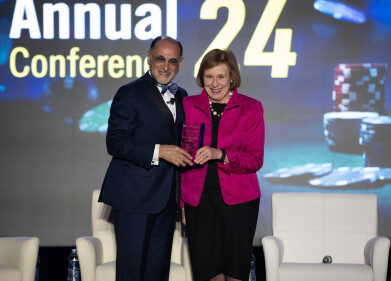News & Views
Space Technologies Help Monitor Ganges Basin
Jun 23 2018
A project funded by STFC through the UK’s Global Challenges Research Fund and which includes researchers from the University of Leicester and King’s College London, is using space sensors to monitor the Ganges Basin, an area that is home to approximately 500 million people.
The UK and Indian scientists are using sensors on space-borne and unmanned aerial vehicle (UAV) platforms to map an area - a new Critical Zone Observatory (CZO) - on the banks of the Ganges Basin.
The CZO encompasses agriculturally-rich land, however climate unpredictability combined with ground-water depletion and high levels of poverty are directly threatening the livelihoods of farming communities living within the Ganges basin.
The CZO was set up by Rajiv Sinha and colleagues from the Indian Institute of Technology Kanpur (IITK) as part of an international effort to determine how land and atmosphere interactions within the CZO ecosystem are impacted by human-induced and environmental disturbances. The CZO, supported by the Indian Ministry of Earth Sciences (MoES), has had a network of hydro-meteorological instrumentation collecting data for more than a year. The CZO will be augmented with high-resolution thermal infrared sensors and measurements through the STFC project.
Space scientists Harjinder Sembhi (project leader) and Darren Ghent, of the Department of Physics and Astronomy at the University of Leicester, will monitor the CZO using land surface temperatures (LST) derived from data collected by the SLSTR (Sea and Land Surface Temperature Radiometer) instrument, flown on board the European Sentinel 3A mission and calibrated at the STFC RAL Space Centre Calibration Facility.
“This project is about using high-quality SLSTR observations to characterise how vegetation is impacted by agriculture practises (such as irrigation regimes and crop rotation) and identify how the changing climate is impacting the landscape. With our NGO partners, The Flow Partnership-UK and The Energy and Resources Institute, we will disseminate information through stakeholder engagement with policy-makers and farming communities and co-develop evidence-based strategies to make future policy recommendations,” Harjinder Sembhi said.
More details on the project are available on University of Leicester website; www.le.ac.uk
Digital Edition
Lab Asia 31.4 August 2024
August 2024
Chromatography Articles - HPLC gradient validation using non-invasive flowmeters Mass Spectrometry & Spectroscopy Articles - MS detection of Alzheimer’s blood-based biomarkers Labo...
View all digital editions
Events
Sep 11 2024 Bangkok, Thailand
Sep 11 2024 Bangkok, Thailand
Sep 11 2024 Singapore
Sep 18 2024 Lausanne, Switzerland
Sep 19 2024 Shanghai, China

-(300-x-250-mm)_1.jpg)



.jpg)












